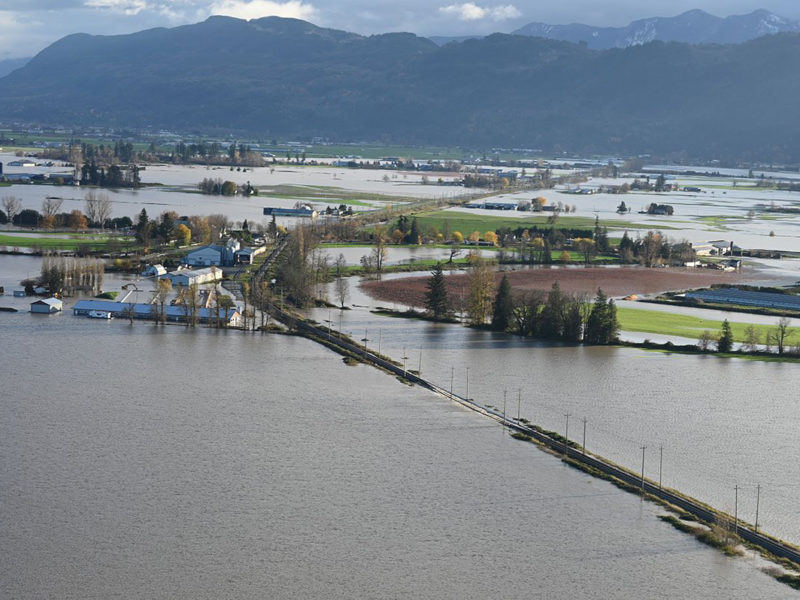Preventing development in disaster-prone areas is on the table as the province seeks to mitigate risk from future floods and wildfires, but BC’s minister of public safety says farms shouldn’t worry.
Pointing to the lessons learned from the floods that tore through farmland and residential neighbourhoods after a dike broke in Grand Forks in 2018, Mike Farnworth told Country Life in BC that some property owners may need to relocate.
“Don’t just build back in the place that got flooded, but look – is there is an opportunity to relocate?” he says. “All of these kinds of things are going to have to play into how we manage disasters and how we respond to disasters and how we prepare for disasters in the future.”
But he says homes, rather than farms, are the most likely to be relocated. For farm properties, rebuilding critical infrastructure is the top priority, especially in key areas like the Fraser Valley.
“The immediate thing right now is to get the recovery underway and build back better. So whether it’s our dikes, our road networks, our transportation systems – all of those things – at the same time recognizing that there may be areas where you say, ‘Y’know what? The flooding risk here is so great, particularly in terms of residential, is there an opportunity to perhaps relocate?’” he says.
The changes will build on the Abbott-Chapman review of the provincial response to flood and wildfire in 2017. BC Cattlemen’s Association was among the first contributors to the review and its submission guided recommendations for improvements in the province’s work with farmers and ranchers.
The Abbott-Chapman report included 108 recommendations. All those related to agriculture are either in progress or complete.
A review of decision-making related to the establishment of evacuation alerts and orders to ensure consideration of farms and ranches completed in 2019. Ongoing work includes a survey of diking infrastructure, including a “consequence classification” similar to what exists for dams.
The province has also pledged to seek infrastructure funding to support dike renewal, which is why Farnworth welcomes Ottawa’s promise this week to develop a National Adaptation Strategy.
The province also intends to overhaul the 25-year-old Emergency Program Act in 2022 in response to ongoing devastation from wildfires and floods. The new act is one of the last Abbott-Chapman recommendations to be implemented.
“I think of Merritt, for example – evacuations under fire, evacuations under flood,” says Farnworth. “I view that legislation coming next year as critically important.”


 BC Veg seeks commissioners
BC Veg seeks commissioners